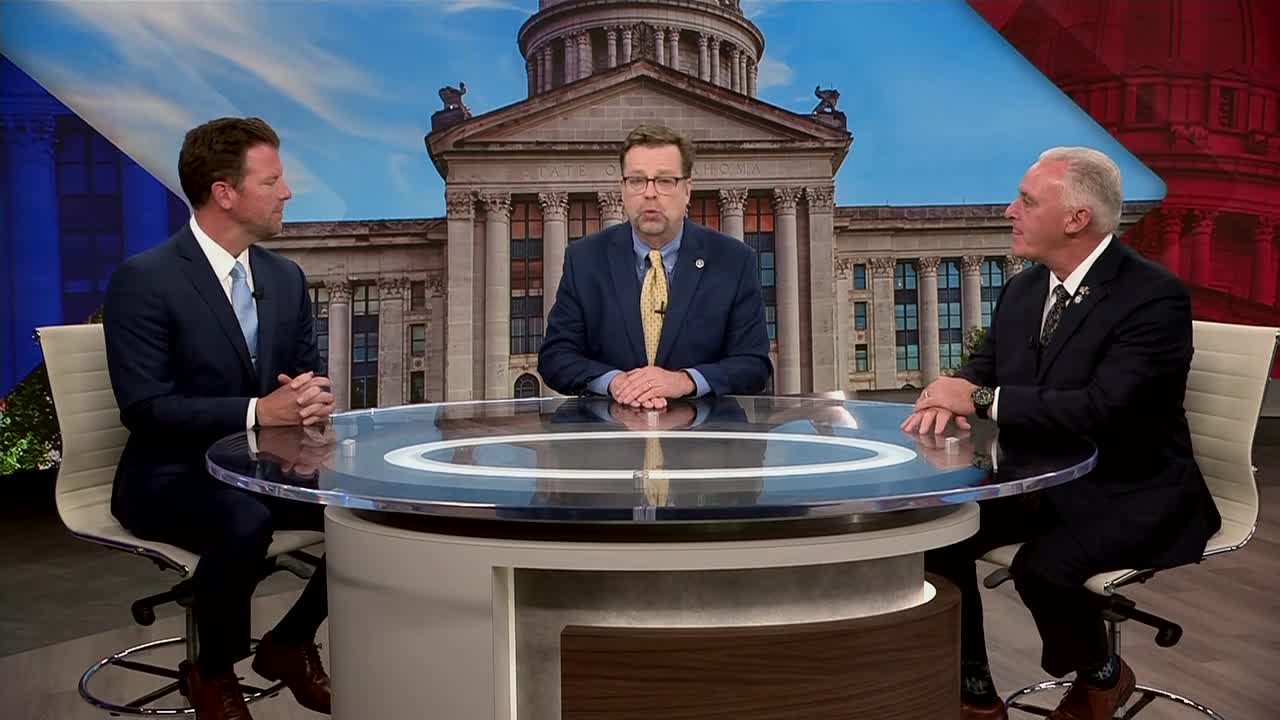Nearly a month into the federal government shutdown, Oklahoma lawmakers and industry leaders say the economic ripple effects are spreading across the state — from paused food assistance programs to frustration over foreign beef imports.
On this week’s episode of Your Vote Counts with Scott Mitchell, Sen. Paul Rosino and former Rep. Jason Dunnington discussed the growing fallout as Congress remains at an impasse over federal funding.
“This is getting really dire,” political analyst Scott Mitchell said. “We’ve been talking about this now for going on four weeks. It’s starting to feel a little bit like Groundhog Day. The federal government continues to say shut down. Congress continues to not get together to have the kind of conversations they need in order to move us forward.”
How does the shutdown affect Oklahomans?
Gov. Kevin Stitt has directed state agencies to assess how the loss of federal funds could affect Oklahoma programs and what contingency plans are in place.
Officials say Oklahoma receives about $127 million each month in Supplemental Nutrition Assistance Program (SNAP) benefits, supporting roughly 600,000 to 700,000 residents.
“So we’re in dire straits here, coming up pretty soon if this train doesn’t get back on the tracks,” Rosino said.
Rosino said Oklahoma’s congressional delegation has consistently voted to reopen the government but lacks support from other states.
“We need at least five more senators across the country to stand up and say, ‘We’re ready to open this government back up,’” he said.
Impact on Oklahoma Ranchers
The discussion also turned to growing frustration among Oklahoma ranchers after reports that the federal government is providing financial support to Argentina while allowing imported beef to enter U.S. markets.
“When we start hurting our own people for another foreign country, we should have some concerns about that,” Rosino said, adding that some of the beef could be sourced from Brazil, where prices are lower.
The Oklahoma Cattlemen’s Association has joined several lawmakers in opposing the move, arguing it undermines U.S. producers already facing record costs for feed and operations.
“If you ask cattlemen’s, if you ask ranchers, it is at a price that allows them to actually stay in business. Then you flood the market with out-of-the-country beef,” Rosino said. “We need more processing so that we can continue to grow the herds in the United States, produce our own beef, and sell it to our own citizens.”
What’s Next
Both lawmakers agreed that expanding domestic beef processing capacity and ending the shutdown should be top federal priorities in the coming weeks.
